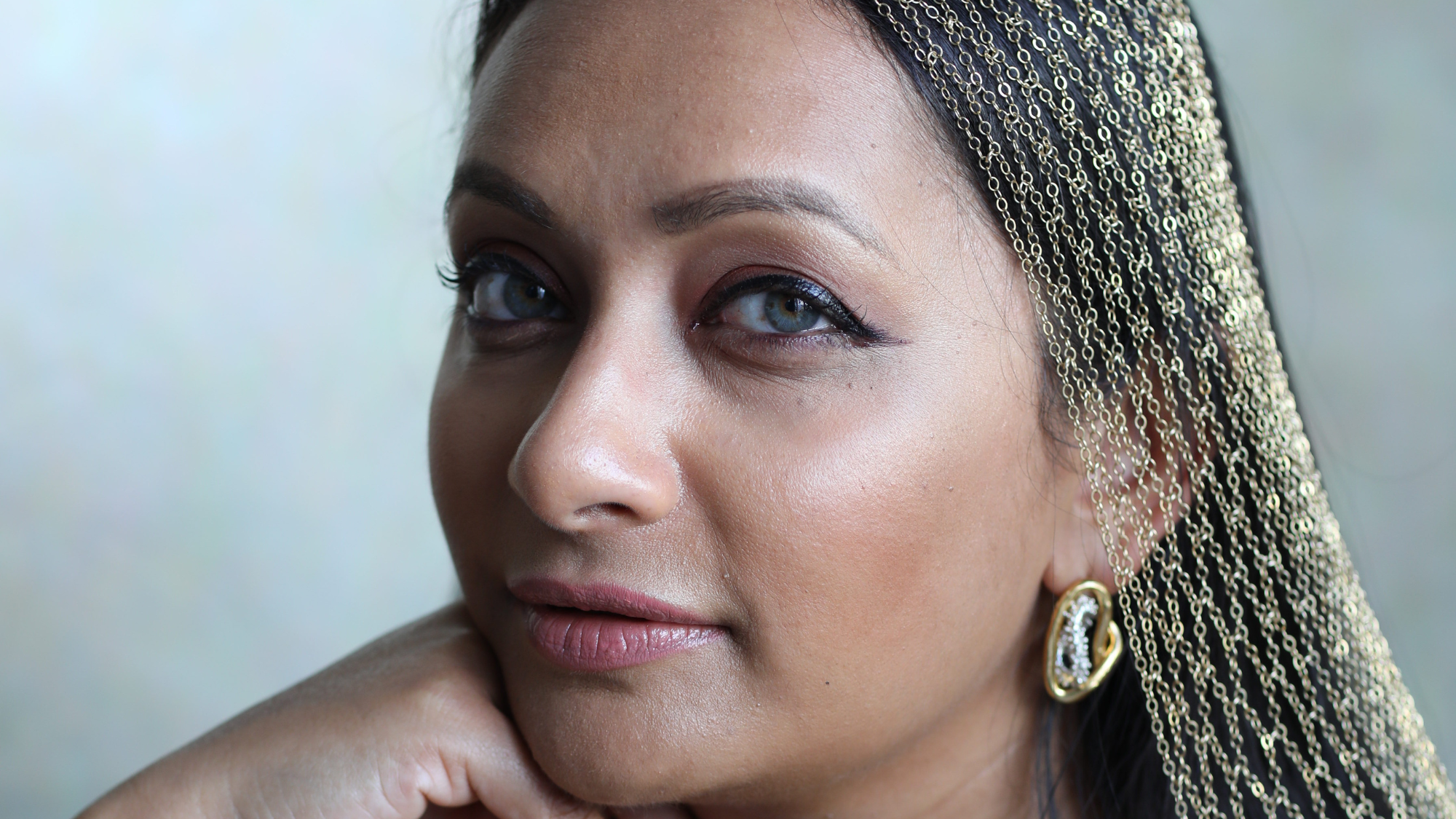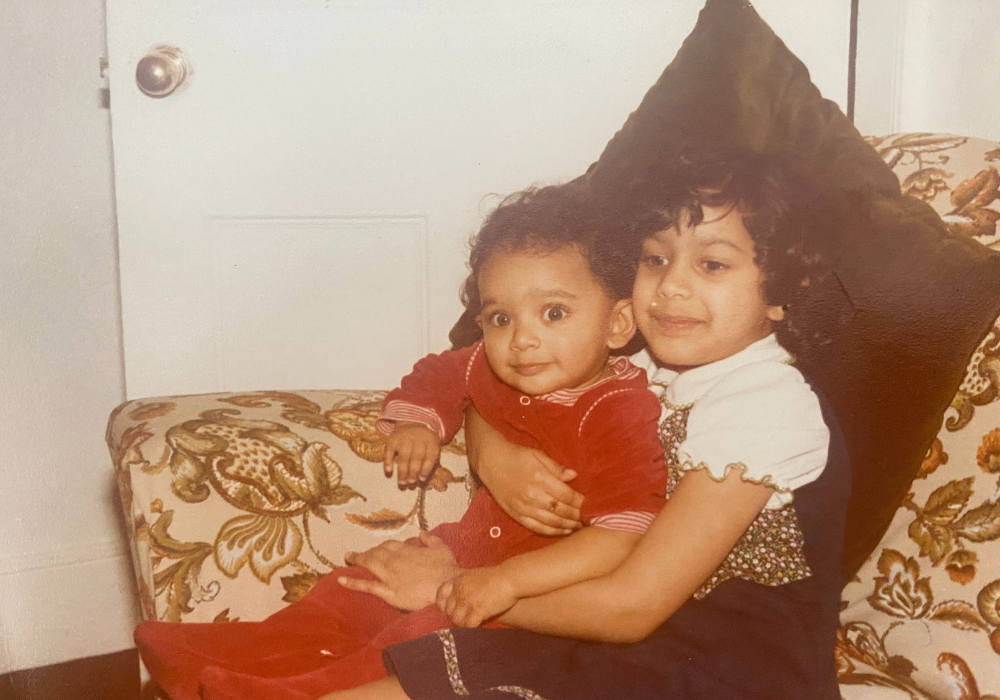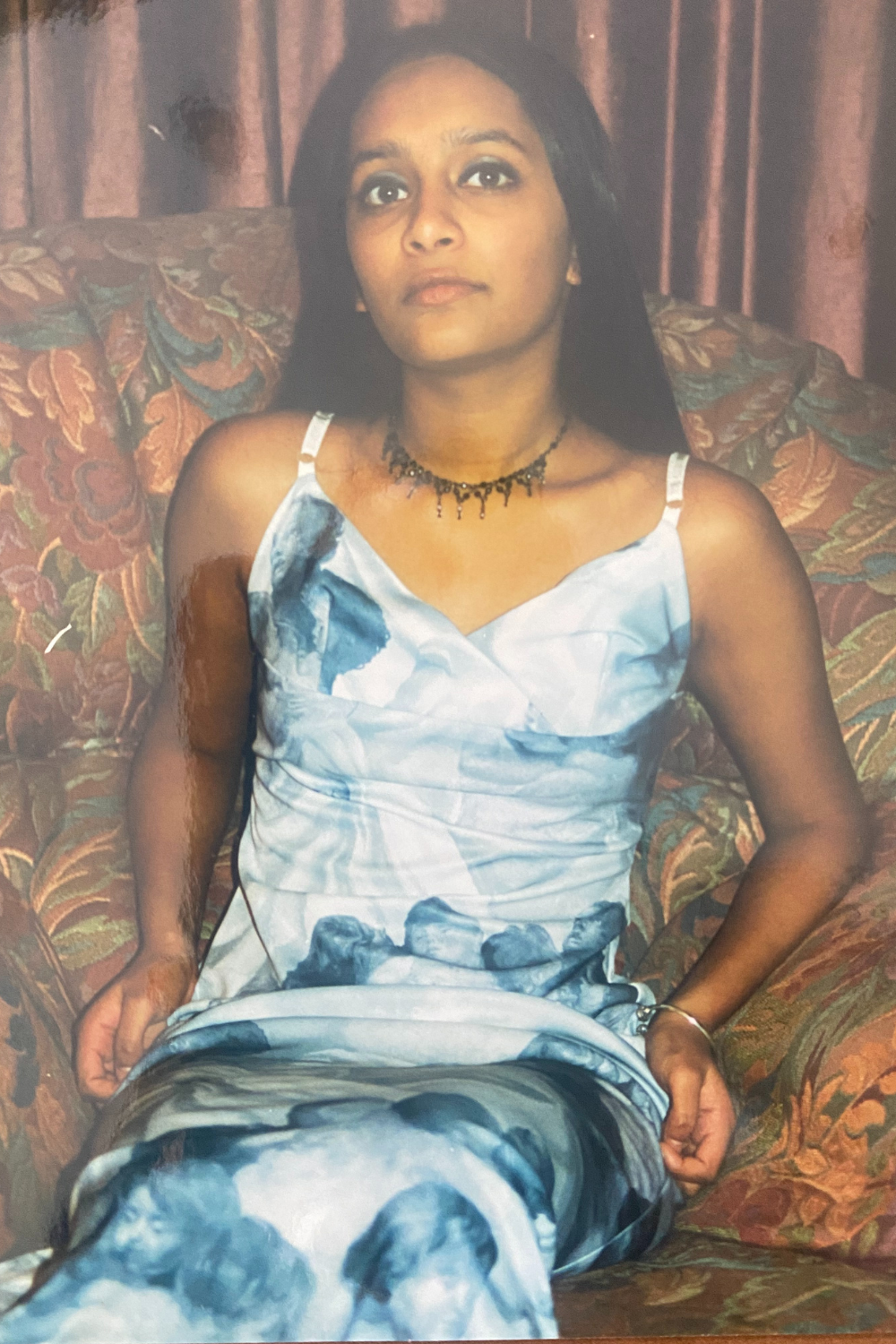Poorna Bell: "How do you take centre stage of your own life, when you've grown up seeing yourself on the sidelines?"
Marie Claire columnist, Poorna Bell, explores the changing (and necessary) South Asian representation on screen

Marie Claire columnist, Poorna Bell, explores the changing (and necessary) South Asian representation on screen
When the well-worn phrase "if you see it, you can be it" is uttered at women’s empowerment events, it is usually followed by thunderous applause. A clap for better representation on boards, another for closing the gender pay gap and finally for more female CEOs. But beyond the realm of career – what does it mean if you have never seen yourself in the wider world? And by that, I mean: how do you form things like self-worth, confidence and self-belief, when you have never seen people who look like you as the romantic interest, the superhero, the lead singer in a band, or the person with power and authority in one of the most influential mediums - film and TV?
As a South Asian, brown-skinned woman, how do you even begin to take centre stage of your own life, when you have grown up only ever seeing versions of yourself on the sidelines or watched as your culture and food is used as a punchline? The answer is: that it is very hard. Over-turning it requires changing an entire world narrative that the mainstream has formed about you.

Representation matters particularly in the film industry, which plays such a powerful role in either upholding negative stereotypes of marginalised communities, or being able to deconstruct them. We only have to look at the impact of Ms Marvel, which features the first ever Muslim female superhero – Kamala Khan – to see how starved people from these communities have been for positive, empowering representation, and how powerful it can be.
Historically on screen, South Asian women have been depicted largely in two ways. Either as the nerdy best friend who supports the white protagonist, or as a woman under the yoke of oppression. Given that South Asians make up almost 25% of the world’s population, there is an extreme distillation of identity that often strips out nuance.
As a British Indian, for me, the anchor and reminder while growing up that narratives for South Asian women could be rich and complex, was largely down to two South Asian female directors: Mira Nair and Deepa Mehta. Nair’s Mississippi Masala which told the story of an Indian woman played by Sarita Chowdhury, falling in love with a black man, was nothing short of groundbreaking. While Mehta’s Fire was pivotal for me for two reasons. First, I had never seen brown women with a queer narrative and it was glorious. Second, the casting of Nandita Das, who had darker skin than the average Indian actress in Bollywood, was vital.
While lack of representation in film is damaging, colourism, the prejudice against darker skins tones within one’s own race, is equally so. Bollywood is rife with it even in 2022 – where the pervasive belief is that the man of your dreams, riches and success can be yours, if your skin is fair. Both things act as a twin blade: they fillet out your capacity to see yourself as worthy of love and reward.
Marie Claire Newsletter
Celebrity news, beauty, fashion advice, and fascinating features, delivered straight to your inbox!

For a big part of my teenage years growing up in white dominated suburbs, I believed my version of beauty was not worth seeing. When boys would come and chat to my friends, I’d make myself smaller, quieter. I’d be less visible, always deferring to others because I didn’t feel as if I had the right to be the object of attention. That would then extend to my career. The trope of ethnic minorities only being able to exist in numbers of one, never two (brilliantly explained in an episode of Master of None) – made me feel as if I should be grateful to be there at all.
Over the years that has slowly changed. In the UK, director Gurinder Chadha made the pioneering film Bhaji on the Beach in 1993 that captured a particular aspect of British North Indian families, from love life to rebellion. She went on to produce the hugely successful Bend It Like Beckham in the early noughties. Both Archie Panjabi and Parminder Nagra – who starred in both films, went on to successful careers in the US, largely in television.
South Asian women aren’t a homogenous group, however, and although films were being made – they were still far and few in between. Even when South Asian women were cast in roles, they tended to be women with fair skin, small noses, small frames and straight hair. In other words, the closest approximation to Eurocentric beauty.
As someone from the south of India, where our skin is darker, our hair different textures, it would take seeing Freida Pinto in Slumdog Millionaire to truly feel reflected in the mainstream space. Pinto hails from Mangalore, the same region as my family, and I remember that little rush of delight upon the discovery. A glowing sense of pride that one of us had made it.
In the last few years, I have seen women with darker skin take centre stage – Simone Ashley, whose family comes from Tamil Nadu, being one of them. Mindy Kaling is also responsible for a huge culture shift in casting not just darker skinned South Asian women, but crucially writing scripts depicting brown women beyond oppressive narratives. The credit for this doesn’t go to white folks in the industry, but to the South Asian women who have tirelessly driven change and made their stories heard, and Black creatives such as Shonda Rhimes who has opened that door with Bridgerton. The latter created a storyline where parts of Asian culture were woven in – such as Kate massaging oil into her sister’s hair – but where they weren’t ridiculed for it, or had to wear it as part of their over-riding identity. The universal themes of love, rejection, grief, sisterhood and sadness were explored without demanding they experience it through trauma – and that has been a step change.
The success we are experiencing is nonetheless tinged with sadness, when I think of how much we could have achieved if we had been shown we were the lead in our own narrative. But then again, I suppose this is the burden of every generation. To put to rest what we cannot change, strive for change in everything we do, and hope that those coming after us, experience every ounce of freedom that is available to them.
In Case of Emergency, Poorna Bell's debut fiction is £14.99, published by Century/PRH
-
 The cast for the Legally Blonde prequel TV show has officially been released
The cast for the Legally Blonde prequel TV show has officially been releasedBy Jenny Proudfoot
-
 Meghan Markle has finally explained her decision not to film ‘With Love, Meghan’ at her home
Meghan Markle has finally explained her decision not to film ‘With Love, Meghan’ at her homeBy Jenny Proudfoot
-
 Feeling inspired by the London Marathon? 10 science-backed pieces of running advice for beginners
Feeling inspired by the London Marathon? 10 science-backed pieces of running advice for beginners"Remember, running is for everyone - you included."
By Rebecca Shepherd